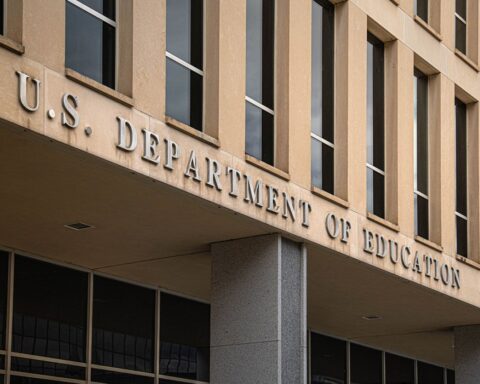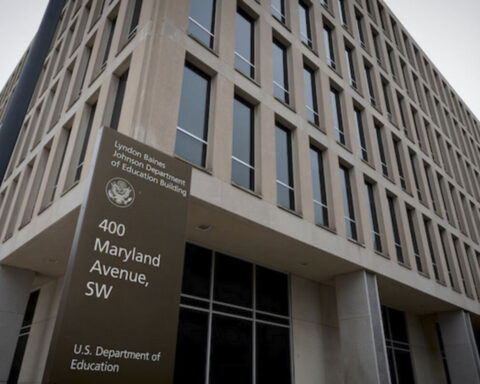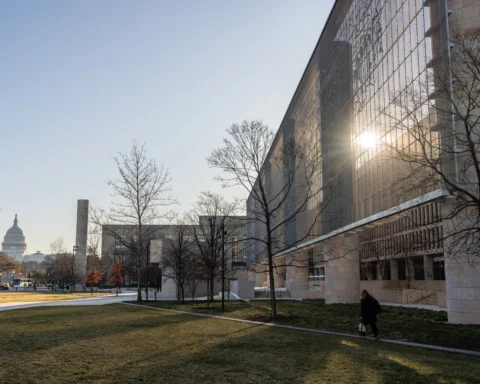The federal government has failed to collect more than $1 billion in fines and other money owed by colleges, most of which is owed by for-profit institutions, according to a report released Thursday by a non-profit advocacy group.
There are nearly 1,300 colleges that owe money to the Department of Education as of February, according to the National Student Legal Defense Network’s review of a series of documents it obtained over two years through Freedom of Information Act requests.
The group, founded by former Department of Education officials, asserts that the agency has failed for years to use all the tools it has to collect money from the colleges and their owners while requiring students to continue paying their debt.
“The Department of Education continues to spend time and money opposing struggling student borrowers while doing nothing to collect more than $1 billion owed to the government by colleges and for-profit companies,” said National Student Legal Defense Network vice president and chief counsel Dan Zibel, who oversaw higher education litigation matters for the Obama administration.
In a statement to CNN, Department of Education press secretary Kelly Leon said that the agency is “committed to improving our policies and practices to better hold institutions accountable for their actions and to provide borrowers with fair and streamlined access to the benefits to which they are entitled.”
The missing $1 billion
There are several reasons why these institutions owe money to the Department of Education, according to the report. Some are fined for misconduct. Others owe money for loan discharges that result from its closure or for defrauding students.
If a college shuts down or is found to mislead students with false claims about job placement rates, for example, it can be on the hook for paying back the debt instead of the borrower.
The Biden administration recently canceled $1.5 billion in loans for borrowers who attended the now-defunct ITT Tech and thousands more who were defrauded by other for-profit colleges, but President Joe Biden has resisted calls from fellow Democrats to cancel additional debt.
RELATED: Democrats urge Biden to extend student loan pause until April 2022
The government can go ahead and cancel a borrower’s debt before the school pays the money back, but the process slowed to a standstill under former Education Secretary Betsy DeVos, who attempted to change the forgiveness rules.
One of the tools the Department of Education has to collect schools’ outstanding debt is to cut them off from federal funding that allows them to make student loans and award grants. Yet, according to the report, nearly 200 of these schools continued to receive federal money during the 2019-2020 school year.
Broad student debt cancellation
For the past 15 months, the government hasn’t collected anything from federal student debt borrowers because of a pandemic-related relief benefit that’s set to expire October 1. But normally, it uses several tactics to collect from borrowers, ranging from wage and tax refund garnishment to fighting debt discharges in bankruptcy court.
Borrowers currently owe the government $1.5 trillion in student debt.
Democrats like Senate Majority Leader Chuck Schumer and Massachusetts Sen. Elizabeth Warren are calling on Biden to forgive $50,000 in federal student loan debt per borrower, arguing the economic crisis caused by the pandemic makes it even more important to cancel student loan debt as soon as possible.
This week, more than 60 Democrats also called on Biden to extend the pandemic pause on student loan payments from October 1 to at least next April.
Biden, who said during the campaign he would support canceling $10,000 per borrower, has repeatedly resisted the pressure since taking office, arguing that the government shouldn’t forgive debt for people who went to “Harvard and Yale and Penn.”
But the President has directed Education Secretary Miguel Cardona to write a memo on the executive branch’s legal authorities to cancel debt. It would be an unprecedented move, but a memo from lawyers at Harvard’s Legal Services Center and its Project on Predatory Student Lending says the Department of Education has the power to do so.
Biden did not include a student debt cancellation provision in his proposed $1.8 trillion American Families Plan, which calls for making community college free and expanding Pell Grants for low-income college students.
More progressive members of the Democratic Party have been calling for student debt cancellation for years. Warren and Vermont independent Sen. Bernie Sanders put forward forgiveness plans when they were running in the Democratic presidential primary.







